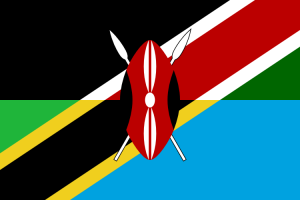Difference between revisions of "Language/Swahili-individual-language/Grammar/Pronouns"
| Line 1: | Line 1: | ||
[[File:Swahili-Language-PolyglotClub.png|thumb]] | |||
__TOC__ | |||
==Personal Pronouns== | ==Personal Pronouns== | ||
Revision as of 12:30, 13 September 2021
Personal Pronouns
The Swahili personal pronouns are as below:
| SWAHILI | ENGLISH | |
|---|---|---|
| 1st Person Singular | Mimi | I |
| 2nd Person Singular | Wewe | You |
| 3rd Person Singular | Yeye (for both male and female) | He or She |
| 1st Person Plural | Sisi | We |
| 2nd Person Plural | Nyinyi | You (plural) |
| 3rd Person Plural | Wao | They |
Possessive Pronouns
In Swahili, the possessive pronouns must agree with the noun class they represent. The nouns in Swahili are classified in groups called "ngeli". An example of one classification (ngeli) is Ngeli ya Ki - Vi(Ch-Vy) where you will find nouns such as:
- Kisu (knife singular) - Visu (plural)
- Kiti (chair) - Viti
- Kitabu (book) - Vitabu
- Chumba (room) - Vyumba
Let's first list the Swahili possessive pronouns before continuing with our example above.
| SWAHILI | ENGLISH | |
|---|---|---|
| 1st Person Singular | -angu | mine |
| 2nd Person Singular | -ako | yours |
| 3rd Person Singular | -ake | his or hers |
| 1st Person Plural | -etu | ours |
| 2nd Person Plural | -enu | yours (plural) |
| 3rd Person Plural | -ao | theirs |
Now, let me explain what i meant by "In Swahili, the possessive pronouns must agree with the noun class they represent". In the above example, we looked at Ngeli ya Ki-Vi(Ch-Vy) and we saw that the word knife-kisu falls in this category or ngeli. So, how do we say "My knife" in Swahili?
*Kisu -angu? No, we would have to place a prefix before the stem -angu. Since knife falls under the category of ngeli ya Ki-Vi(Ch-Vy) then it means:
- We must use the prefix ch for singular and vy for plural i.e. kisu changu - visu vyangu, chumba changu - vyumba vyangu
However, the prefixes placed before the stems when dealing with possessive pronouns change depending on the category(ngeli) of the noun given.
